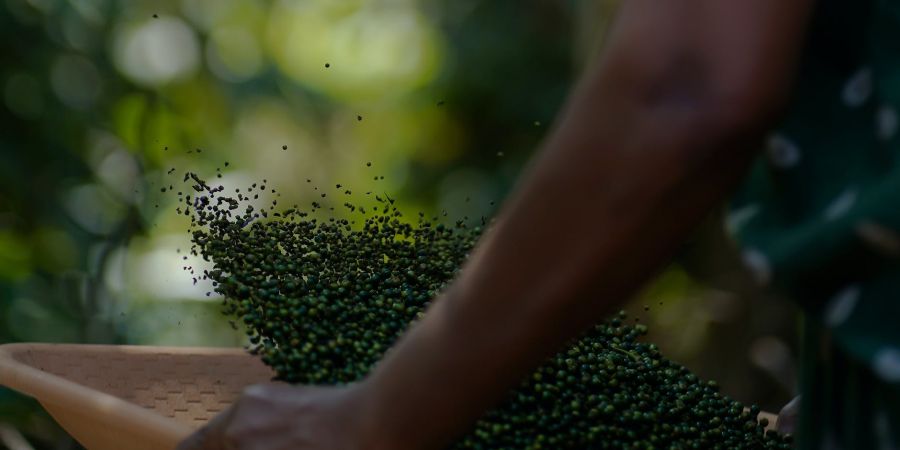

🍃Spice pepper, also known as black pepper, is one of the most widely used and oldest spices in the world. With its rich history, distinct flavor, and numerous health benefits, it has become an essential ingredient in culinary traditions around the globe. In this article, we explore the fascinating journey of spice pepper and its remarkable qualities that have made it a staple in kitchens worldwide.🍃
History🍃
Spice pepper has a long and storied history dating back over 4,000 years. Originating from the Malabar Coast of India, it was considered a highly valuable commodity and was even referred to as "black gold" due to its importance in ancient trade. Pepper was sought after by European explorers, leading to the exploration and colonization of new lands. It played a significant role in the spice trade routes, shaping the course of history and cultural exchange.🍃
Flavor Profile and Culinary Uses 🍃
The distinctive flavor of spice pepper comes from its active ingredient, piperine. This compound provides a pungent and slightly spicy taste, adding depth and complexity to a wide range of dishes. Pepper is commonly used in both its whole form and as a ground spice, making it a versatile ingredient in various cuisines. It enhances the taste of meats, soups, sauces, and marinades, while also complementing fruits, chocolates, and beverages.🍃
Health Benefits 🍃
Beyond its culinary applications, spice pepper also offers several health benefits. Piperine, the key compound in pepper, has been found to have antioxidant and anti-inflammatory properties. It aids digestion by stimulating the secretion of enzymes, promoting healthy gut function. Additionally, research suggests that piperine may enhance nutrient absorption and metabolism, making it a valuable addition to a balanced diet.🍃
Cultural Significance and Traditional Remedies .🍃
Pepper holds cultural significance in many societies. In ancient Greece and Rome, it was a symbol of wealth and prestige. In traditional Chinese medicine, pepper is used to improve circulation and alleviate pain. Ayurveda, the ancient Indian system of medicine, incorporates pepper to aid respiratory problems and stimulate appetite. These traditional uses highlight the multifaceted nature of this spice and its integral role in diverse cultural practices.🍃
Pepper Production and Global Trade 🍃
Today, spice pepper is cultivated in various regions worldwide, including India, Vietnam, Indonesia, and Brazil. The harvesting and processing of pepper involve a meticulous process to ensure the quality of the final product. As a result of its high demand, pepper remains one of the most traded spices globally. Its ubiquity in kitchens across continents is a testament to its enduring popularity and universal appeal.🍃
Spice pepper, with its rich history, remarkable flavor, and numerous health benefits, continues to captivate taste buds and add a distinct touch to cuisines around the world. Whether it's used as a seasoning or for its medicinal properties, this versatile spice has rightfully earned its place as an indispensable ingredient in the global culinary repertoire.🍃




